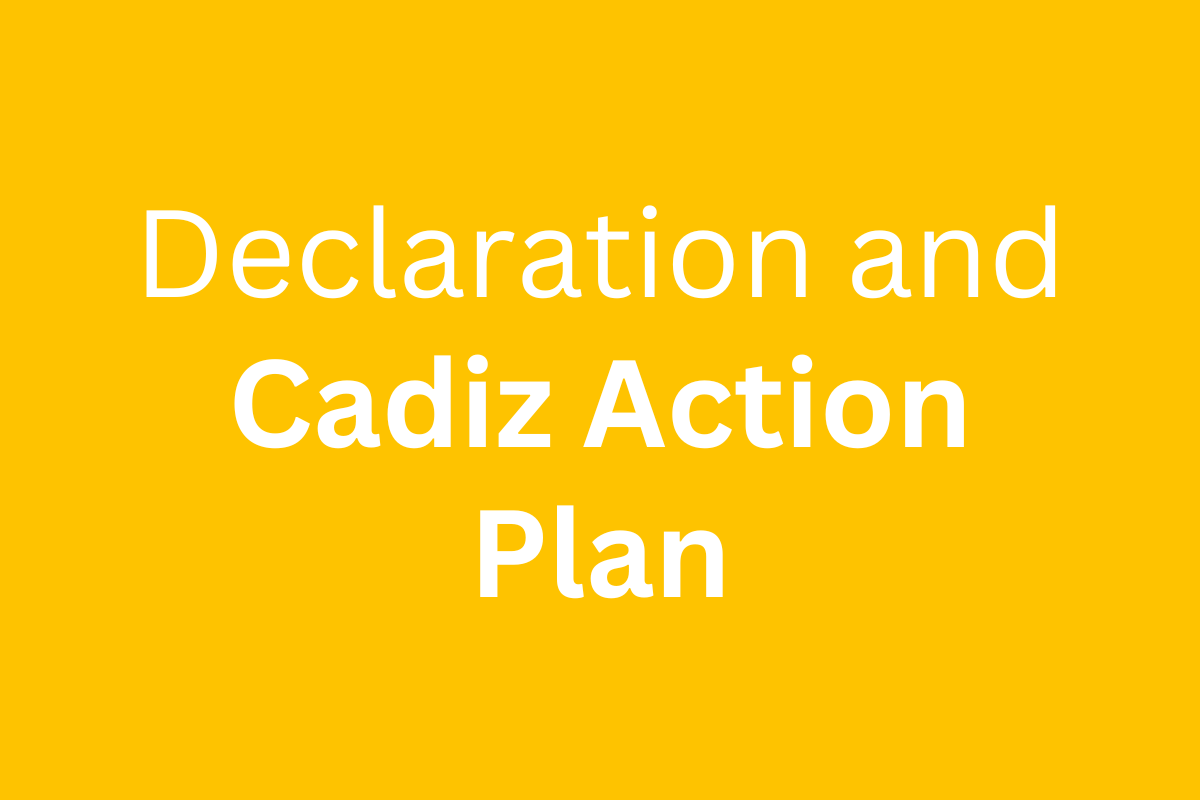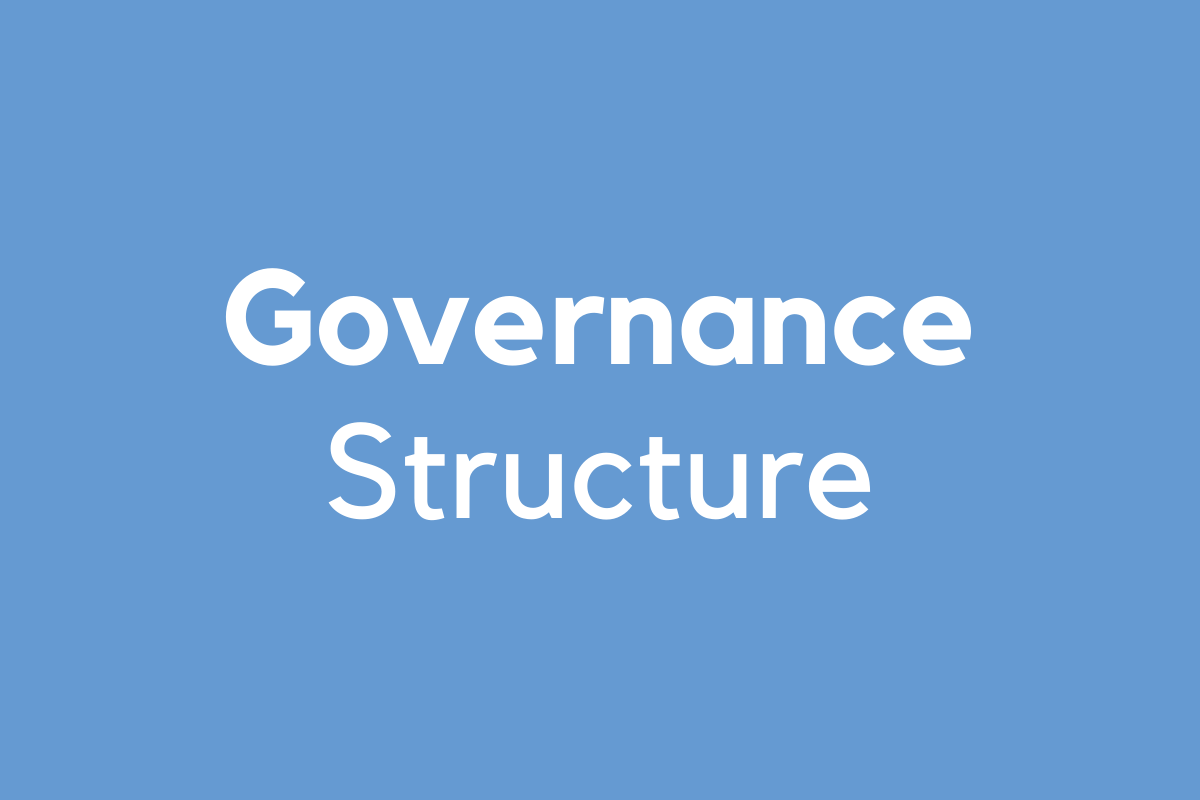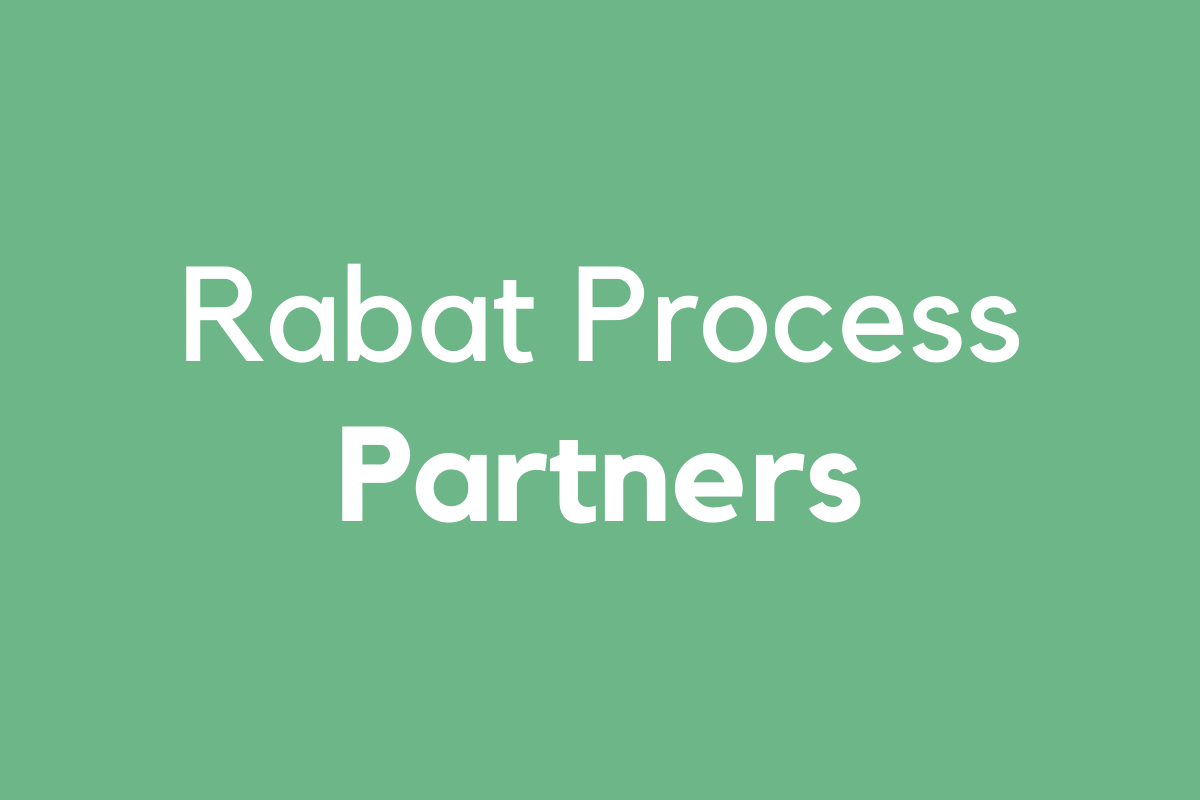The Rabat Process' strategic direction is guided by multi-annual cooperation programmes. Periodically, ministers in charge of migration and development affairs meet at Euro-African Ministerial Conferences on Migration and Development to set the strategic agenda of the Dialogue by way of ministerial declarations and action plans. These non-binding cooperation frameworks help to coordinate national efforts in the area of migration management and to shape the focus and priorities of the Dialogue.
Six ministerial declarations since 2006
To date, six Euro-African Ministerial Conferences on Migration and Development have taken place as part of the Rabat Process. The Dialogue benefits from the legitimacy and political ownership created by the ministerial mandate that backs its cooperation programme. Each political declaration is linked to an ambitious action plan that aims at translating political commitments into concrete actions.
Every three to five years, the partners update the Dialogue’s strategic framework, thereby addressing the evolving realities of migration affairs. The 6th Euro-African Ministerial Conference on Migration and Development, held on 13-14 December 2022, defined the current multi-annual cooperation programme for the period of 2023-2027 in the Political Declaration and Cadiz Action Plan.
▸2006: Rabat Declaration and Action Plan
Adopted in 2006, the Rabat Declaration and Rabat Action Plan established the groundwork of the Dialogue. The Rabat Declaration founded the Dialogue with the aim to promote a close partnership between the countries along the West African migration routes.
▸2008: Paris Declaration and Triennial Cooperation Programme
Adopted in 2008, the Triennial Cooperation Programme built on the outcomes of preceding dialogue meetings at technical level. Thematic meetings on legal migration, irregular migration, and migration and development had gathered technical representatives of the partner countries and led to joint conclusions that were reflected in the ministerial declaration and cooperation programme.
▸2011: Dakar Declaration and Strategy
Adopted in 2011, the Dakar Strategy promoted the implementation of operational initiatives, organised around five principles and ten priority objectives. The objectives were grouped into three thematic pillars:
1. Organising legal migration
2. Fight against irregular migration
3. Strengthening the synergies between migration and development
The Dakar Strategy reflected the common resolve of the partner countries to “approach migration issues in a balanced way, in the spirit of shared responsibility”.
The five principles of the Dakar Strategy:
- Working dialogue
- A flexible and balanced approach
- Coherent dialogue
- Committed partners
- Shared responsibility
▸2014: Rome Declaration and Programme
Adopted in November 2014, the Rome Programme added international protection as the fourth thematic pillar and thereby underlined the importance that the partner countries assign to this topic. Among the objectives defined in the programme, the partner countries chose two priority topics:
- the link between migration and development;
- the prevention and fight against irregular migration and related crimes.
▸2018: Marrakesh Declaration and Action Plan
Adopted in 2018, the Marrakesh Declaration and Action Plan defined 10 objectives and 23 actions and paid particular attention to fostering coherence and complementarity with the Joint Valletta Action Plan (JVAP). The objectives of the Rabat Process’ Marrakesh Action Plan are aligned with the five domains defined by the JVAP:
1. Development benefits of migration and addressing root causes of irregular migration and forced displacement
2. Legal migration and mobility
3. Protection and asylum
4. Prevention of and fight against irregular migration, migrant smuggling and trafficking in human beings (THB)
5. Return, readmission and reintegration
Moreover, the Marrakesh Action Plan introduced a unique commitment mechanism: On a voluntary basis, partner countries could pledge to implement one or more of the actions defined in the plan.
▸2022: Cadiz Declaration and Action Plan
The Political Declaration and Cadiz Action Plan is the framework currently guiding the activities of the Rabat Process and its partner countries. It builds on the Dialogue’s previous cooperation programme and ensures continuity by maintaining the same five action areas, while its 10 objectives and 29 actions reflect the evolved international context. Compared to the previous cooperation programme, the Cadiz Action Plan is more extensive and contains additional actions that address regular migration (action area 1), the protection of refugees, forcibly displaced and others in need of protection (action area 2) and the protection of smuggled migrants, persons in need of international protection, and victims of THB (action area 4). The Cadiz Programme also pays attention to ensuring complementarity and synergies with other frameworks, such as the 2030 Agenda for Sustainable Development, the Global Compact for Safe, Orderly and Regular Migration and the Global Compact on Refugees.
Read more about the Cadiz Political Declaration and Action Plan or download it here:





